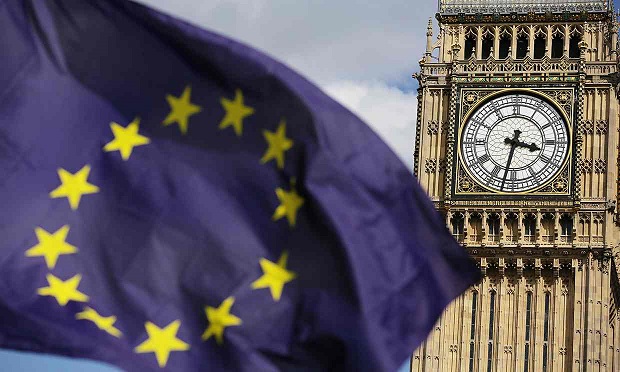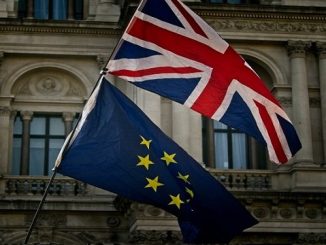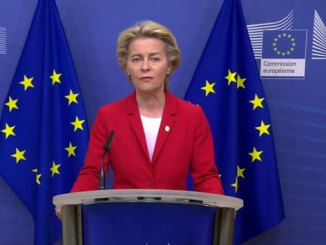
On Jan. 4, British Prime Minister Theresa May named Tim Barrow, a career diplomat, as the U.K.’s permanent representative to the European Union. It will be Barrow who must talk face to face in Brussels with diplomats from the EU’s 27 other member countries, building bridges with people who still feel bruised and angry at U.K. voters for supporting a referendum in June to quit the union. When his invisible work is done, politicians will step in, and formal negotiations will begin by the end of March.
Barrow has just 11 weeks to prepare. His predecessor, Ivan Rogers, quit without warning on Jan. 3 after clashing with May’s office. He was apparently frustrated with the unrealistic attitudes of his pro-Brexit political bosses in London, who cheerfully insist that leaving the EU will be relatively trouble-free.
In his parting message to embassy colleagues, Rogers spelled out what he saw as the most immediate problems. “I hope you will continue to challenge ill-founded arguments and muddled thinking and that you will never be afraid to speak the truth to those in power,” he wrote. The structure of the U.K.’s negotiating team lacks clarity, and there aren’t enough specialists for the talks, he added.
If Barrow is to succeed, he will have to persuade his EU counterparts to give him clues about their negotiating positions. Between now and March, he also needs to master more than 40 years of European law, amounting to thousands of different directives and regulations, and their impact on everything from banking rules to bath towels.
Just as taxing as negotiating with other EU members will be navigating the political minefield in Britain. In his farewell note, Rogers said nobody—including him—knew what kind of deal the prime minister wanted. This is partly because May’s Tory party is still divided on trade and immigration policy. Such divisions reach into the highest levels of her cabinet, where Chancellor Philip Hammond leads those who favor a “soft” Brexit and Foreign Secretary Boris Johnson favors a quick and clean break.
“Brexit is fiendishly complicated, yet fiendishly simple,” says Charles Crawford, a former top British diplomat who worked with Barrow in the 1990s. “The essence of any U.K.-EU deal can be written down on one side of a piece of paper.” It would set out whether the country can still trade freely in the EU single market; what access British banks will have to other EU countries; and new migration rules.
While a young official in his 20s, Barrow was stationed in the U.K. Embassy in Moscow as the USSR collapsed. Crawford was with him one night when a crowd blockaded streets near the Russian parliament, and a British minister visiting from London suggested taking a look in person. His colleagues were terrified, but Barrow arranged for a minibus and a tour.
He’s seen as coming from the old school of British officialdom. A Tolkien fan with the air of an Oxford professor, Barrow is said to shun computers, instead asking his secretary to print out documents for him to read. “Tim Barrow has been invaluable,” says Johnson. “He is just the man to get the best deal for the U.K.”
According to Crawford, when Barrow knows what the politicians want, he won’t rest until he delivers it. He’s “like a heat-seeking missile: You point him at a big, fast-moving target and he’s likely to hit it,” Crawford says. “But it’s not his job to choose the target.”
The bottom line: The diplomat assigned with prepping for Brexit must handle complex talks with the EU and political divisions at home.
by Timothy Ross
Source: Bloomberg.com





Be the first to comment